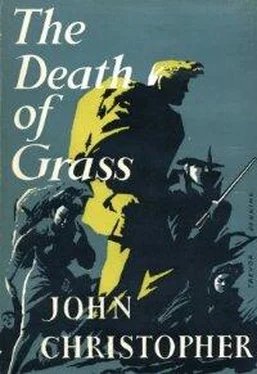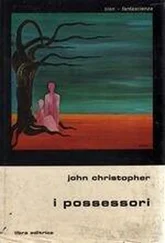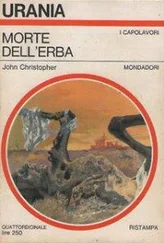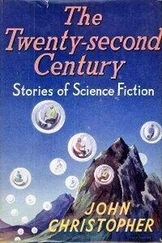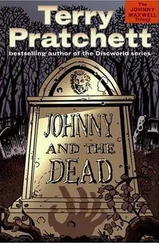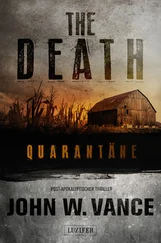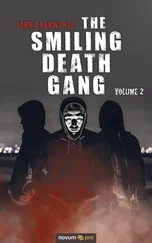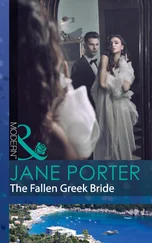He said softly: “Rest a minute. If it’s too much for you, go back. I’ll carry on by myself.”
They stayed like that for several seconds. Pirrie was shuddering against John’s body. Then he pulled himself upright.
He gasped: “All right now.”
“Are you sure?”
Making no answer, Pirrie waded on. They were abreast of the fence, and then beyond it.
John looked back. The valley’s defences were outlined in the moon’s soft radiance. There were three men on the platform, and another three or four huddled on the ground behind it, presumably asleep. He whispered to Pirrie:
“Here?”
“Give ourselves a chance,” said Pirrie. “Lengthen the range… I can hit them at another twenty yards…”
His voice seemed stronger again. Pirrie was probably indestructible, John reflected. He trudged after him through the swirling water, aware of fatigue now in his own limbs, doubling the water’s drag.
Pirrie stopped at last, and turned, bracing himself against the current. They were about twenty-five yards inside the valley. John stood at his left elbow.
“Try for the one on the right,” Pirrie said. “I’ll manage the other two.”
“The machine-gun first,” John said.
Pirrie did not bother to reply to that. He drew his rifle up to his shoulder, and John, more slowly, did the same.
Pirrie’s rifle cracked viciously, and in the moonlight the figure of the man behind the machine-gun straightened up, cried in pain, and went down again, clutching at the edge of the platform and missing it. John fired for his own target, but did not hit. More surprisingly, Pirrie’s second shot failed of its mark. Both men remaining on the platform raced for the machine-gun, and tried to swing it round. Pirrie fired again as they did so, and one of them slumped across it. The other pushed him free, and managed to turn it. John and Pirrie fired again unsuccessfully. The figures beneath the platform had risen and were reaching for guns. Then the machine-gun began to sputter in a staccato rhythm of sound and flame.
It did not manage much more than a dozen rounds before Pirrie got his third victim, and the deadly chatter stopped. The men on the ground had begun to fire at them now, but the whine of individual bullets seemed irrelevant.
Pirrie said: “The ladder… keep them off the platform…”
His voice was weaker again, but John saw him re-load, and, with his usual snatched but unwavering aim, hit yet another figure, which had begun to climb the ladder to the platform. John tried to listen for sounds of Roger and the others beyond the fence, but could hear nothing. They must have reached the fence by now. He looked at the black line of the fence’s top, searching for the figures that should be climbing over it.
Suddenly, in an entirely natural and unforced tone, Pirrie said:
“Take this.”
He was holding out his rifle.
John said: “Why…?”
“You fool,” Pirrie said. “I’m hit.”
A bullet whined towards them across the surface of the water. John could see, examining him closely, that his shirt was holed and bloody at the shoulder. He took the gun, dropping the one he had into the water.
“Hang on to me,” he told Pirrie.
“Never mind that. The ladder!”
There was another figure on the ladder. John fired, re-loaded, fired again. The third shot succeeded. He turned to Pirrie.
“Now…’ he began.
But Pirrie was gone. John thought he saw his body, several yards downstream, but it was difficult to be sure. He looked back to the more important concern—the fence. Figures were swarming across the top, and one already had hold of the machine-gun, tilting it downwards.
He saw the remaining defenders throw their guns away and then, chilled and utterly tired, began looking for the best place to get in to the bank.
Into this room he had come with David, side by side, their fingers locked together to calm each other’s fear and uncertainty before the mystery of death, to see the corpse of Grandfather Beverley. The room had changed very little in a score of years. David had never had any desire to modernize his surroundings.
Ann said: “Darling, I’m sorry—for what I said last night.” He did not answer. “It is going to be different now. You were right.”
And in the afternoon of that far-away day, the solicitor had come up from Lepeton, and there had been the reading of the will, and David’s embarrassment and guilt when they learned that all had been left to him—money as well as land, because a good farmer will never, if he can help it, separate the two. Well, he thought, I got it in the end.
“It’s not your fault,” Ann said. “You mustn’t think it is.”
His mother had said: “You don’t feel badly about it, do you, darling? It doesn’t mean that Grandfather didn’t like you, you know. He was very fond of you. He told me all about this. He knew David wanted to be a farmer, and that you didn’t. It means that all my money goes to you—all that your father left. You will be able to have the very best training an engineer could have. You do see that, don’t you?”
He had said yes, more bewildered by his mother’s seriousness than anything else. He had always expected that Blind Gill would go to David; neither property nor money counted for anything against his one overwhelming feeling of distaste, repugnance, for the fact and presence of his grandfather’s death. Now that the funeral was over and the blinds had gone up again, he wanted only to forget that grimness and shadow.
“You will have quite enough, darling,” his mother had said. He had nodded impatiently, eager to be free of this conversation which was a last link with the unpleasantness of death. He took as little note of the urgency of his mother’s tone as he had done of her increasing pallor and thinness in the past year. He did not know, as she did, that her own life had only a short time to run.
“Johnny,” Ann said. She came and put her hands on his shoulders. “You must snap out of it.”
And after that, he thought, the holidays with aunts, and his comradeship with David, all the deeper for their shared isolation. Had there been, beneath all that, a resentment of what his brother had—a hatred concealed even from himself? He could not believe it, but the thought nagged him and would not be quieted.
“Everything’s going to be all right,” Ann said. “The children can grow up here in peace, even if the world is in ruins. Davey will farm the valley land.” She glanced at the body lying on the bed. “David wanted that more than anything.”
John spoke then. “He’ll do more than farm it, won’t he? He will own it It’s a nice bit of land. Not as much as Cain {144} 144 Cain: eldest son of Adam, who killed his brother Abel
left to Enoch {145} 145 Enoch: eldest son of Cain (Genesis 4:17)
, though.”
“You mustn’t talk like that And it wasn’t you who killed him—it was Pirrie.”
“Was it? I don’t know. We’ll blame Pirrie, shall we? And Pirrie is gone, washed away with the river, and so the land flows with milk and honey {146} 146 milk and honey: abundance, plenty
again, and with innocence. Is that all right?”
“John! It was Pirrie.”
He looked at her, “Pirrie gave me his gun—he must have known, then, that he was finished. And when I saw that he had gone under, I thought of throwing it after him—that was the gun which brought us here to the valley, killing its way across England. I could have got to the shore more easily without it, and I was deadly tired. But I hung on to it.”
“You can still throw it away,” she said. “You don’t have to keep it.”
“No. Pirrie was right. You don’t throw away a good weapon.” He looked at the rifle, resting against the dressing-table. “It will be Davey’s, when he is old enough.”
Читать дальше
